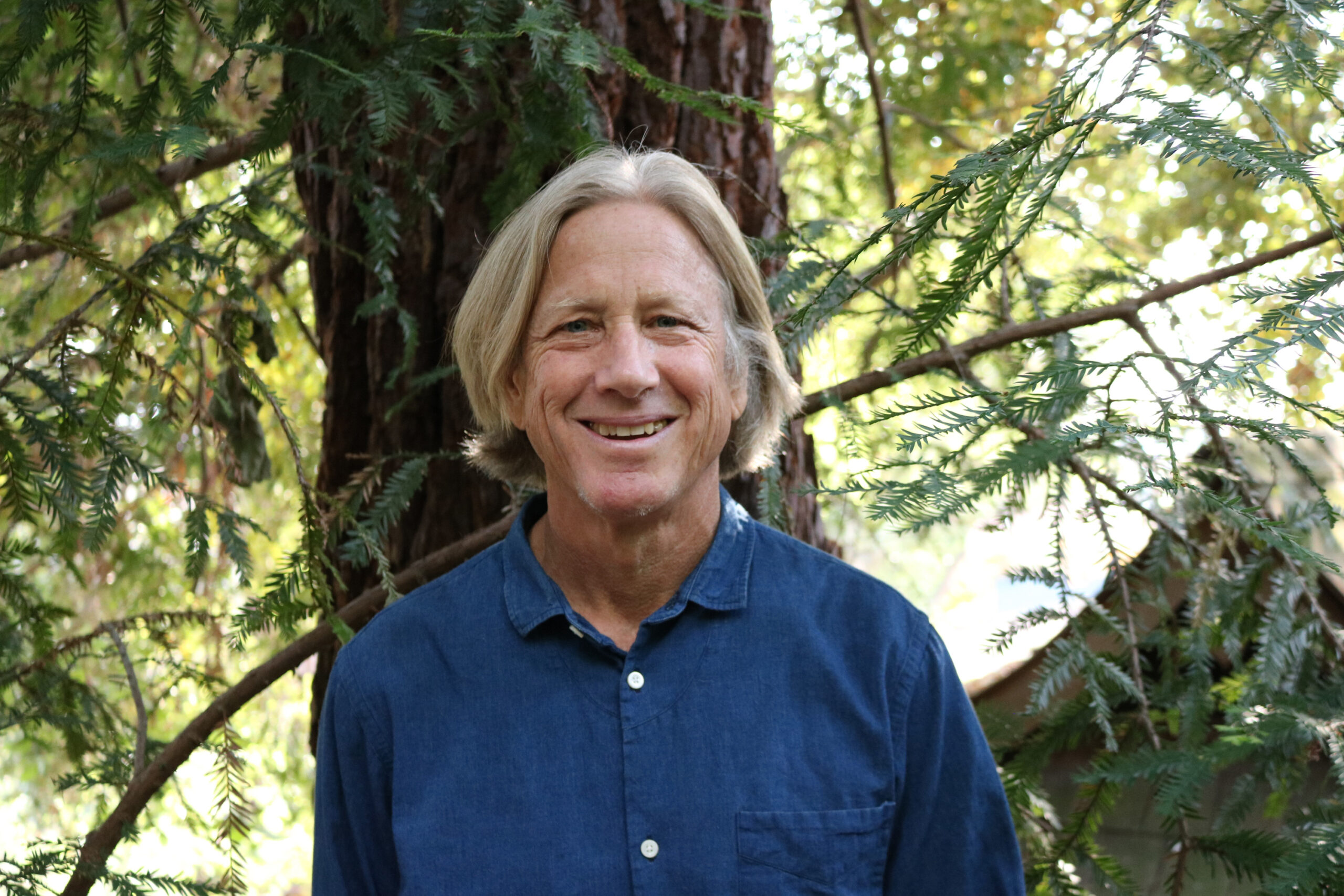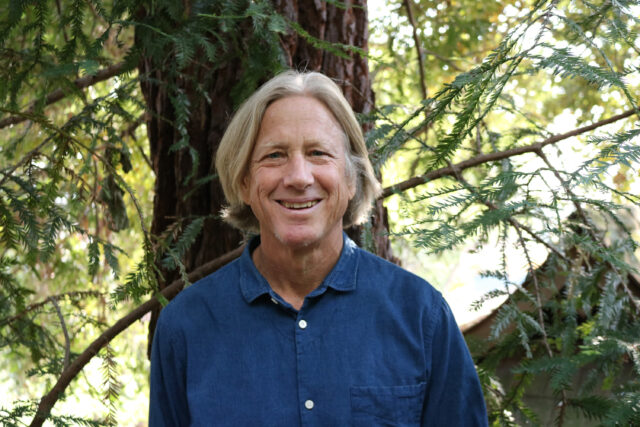
11 Aug T-Ride Science & Foundation: Dr. Keltner, “How Awe Can Change Your Life”!
Telluride Science and the Telluride Foundation host Dr. Dacher Keltner in a collaborative program titled “How Awe Can Change Your Life.” The event, which takes place on Monday, August 14, 5:30 – 6:30 pm at Telluride Gallery West, is FREE and open to the public, but an RSVP is required to attend: annie@telluridescience.org.”
Visit telluridescience.org to learn more about Telluride Science and the capital campaign to transform the historic Telluride Depot into the Telluride Science & Innovation Center. The venue will be permanent home for Telluride Science and a global hub of inspired knowledge exchange and development where great minds get to solve some of our greatest challenges.
Go here for more about Telluride Science.
Go here for more about the Telluride Foundation.

Dr. Dacher Keltner, credit, Natalie Keltner McNeil.
How do we explain the goose bumps we feel when we see the Grand Canyon up close and personal?
Or a double rainbow?
Our response to the millions of stars in the night sky?
How about when we watch a baby take its first steps?
How do we put into words the collective magic of standing in a crowd and singing in unison, or the wonder we feel gazing at centuries-old works of art?
Or what Telluride locals (guests too) feel when we look out our windows or take a hike?
Short answer: Awe.
“Awe is an emotion we feel when we encounter vast mysteries that transcend our understanding of the world. It’s only in the past 15 years or so that scientists have studied awe, in large part because we’ve only studied positive emotions for 20 years. There was an assumption that we couldn’t study awe scientifically because it is beyond words and rational analysis, and because awe is associated with phenomena like music, spirituality, and epiphanies, that are themselves hard to study,” explains Dr. Dacher Keltner, whose most recent book is titled “Awe: The Science of Everyday Wonder and How It Can Transform Your Life.”
From Keltner’s publisher, Penguin Random House:
“This wonderful outing by University of California, Berkeley psychology professor Keltner (‘The Power Paradox’) lays out a scientific overview of awe. He contends that awe is a ‘basic human need’ that’s good for one’s well-being and produces a transcendent sense of dissolving boundaries between the self and the wider world.
“Pondering why awe sometimes produces tears, Keltner suggests that adults might tear up as a learned reaction from childhood when one cried while feeling ‘small and lacking agency,’ an emotion similar to the overwhelming sensation that accompanies awe. The feeling has practical applications, the author posits, detailing scientific studies that found awe to be associated with lower levels of inflammation and capable of mitigating perceptions of political polarization.
“He outlines the ‘eight wonders of life’ that are most likely to induce awe: moral beauty (e.g., courage in battle); collective effervescence (e.g., participating in a political rally); nature, music, visual art, spirituality, mortality, and epiphanies. Their power, he writes, stems from their likelihood to remind the beholder that ‘we are part of many things that are much larger than the self.’ Eye-opening science and Keltner’s appropriate sense of wonder add up to an enlightening take on the importance and potency of awe ..

Keltner’s research focuses on the biological and evolutionary origins of compassion, awe, love, and beauty, and power, social class, and inequality. As a Professor of Psychology at the University of California, Berkeley, and director of the Berkeley Social Interaction Lab, he is a leading scholar in the study of emotion, including his new project on awe which crosses the globe.
Dr. Dacher Keltner is the celebrated guest speaker at the second in a series of collaborations between Telluride Science and the Telluride Foundation. His topic: “How Awe Can Change Your Life.” The event takes place at the Telluride Gallery West, 224 West Colorado Ave.;, on Monday, August 14, 5:30 – 6:30 p.m.
The program description highlights the fact: “…A new science finds that a brief dose of awe is as good for us as anything we might do: it benefits our brains, hearts, and immune systems, counters toxic selfishness and anxiety, and encourages the better angels of our nature, including greater sharing, creativity, and sense of common humanity…”
The following is our email interview with Dr. Dacher.
TIO: Before writing your book, you spent three decades researching awe. In anticipation of your talk in Telluride please share a few of the most eye-opening, surprising results from your studies.
DK:
• That people feel awe 2-3 times a week.
• That the most common source of awe is other people’s moral beauty.
• That awe shifts your heart and immune system in ways that are as good for us as almost anything you can do.
TIO: Dr. Dacher, no doubt you are aware of the fact that in 1974 Dr. Richie Davidson traveled to Tibet to hear the Dalai Lama speak. He was, well, awe-struck and decided to study the brain on happiness. Years later, Dr. Richie visited Telluride and downloaded some of the results of his research over the years – including the fact that happy brains look different from the brains of regular folks, read non-meditators. At UC Berkeley you taught a course titled “The Science of Happiness,” have a podcast on the subject and then wrote your latest bestseller “Awe: The New Science of Everyday Wonder and How It Can Transform Your Life.” So two questions: Does your research into happiness and awe relate in any way to Dr. Richie’s work? Does it leverage his long-term studies? And what is the nexus of happiness and awe and in what ways do both emotions positively impact our overall well-being as regular exercise and the right diet do?
DK: Richie Davidson is a pioneer in the study of contemplative science, how we train our minds — through meditation — to enjoy greater physical and psychological well-being. Our work is very much inspired by this pioneering effort, and now, in fact, we are developing approaches — awe walks, awe moments, awe interventions — that allow people to cultivate awe, like meditation, to live more meaningful lives.
Awe is deeply intertwined with happiness. Brief moments of awe bring us less stress, less narcissism, greater well-being, more sharing, greater purpose or meaning, a deeper sense of community, and better immune profiles. Awe is as good for us as any positive experience.
TIO: Your talk on “Awe” works as a kind of prelude to the Telluride Mushroom Festival, which is full of fungiphiles in awe about the world of mushrooms. Over that event (which starts 8/16) there is always lots of talk about plant-based medicine, especially psilocybin, the default mode network, shutting down the amygdala, parasympathetic and sympathetic nervous systems, and so on. Does awe quiet the incessantly demanding ego too? Is the experience of awe equally heart-opening, equally (or differently) life-changing and/or enhancing? And do you have any issues with this comparison?
DK: Experiences of awe very much resemble the shifts brought about by spirit medicines/psychedelics in that they lead to a dissolving of the self, a sense of being connected to larger systems of meaning, deactivation of the default mode network, greater openness to experience. Many are now arguing that awe is a critical ingredient in how spirit medicines benefit us.
TIO: Are there any pathological coefficients of awe? Any downsides?
DK: Awe can promote the belief in nonfactual things… so one worries that awe could promote beliefs in conspiracy theories. I think high levels of awe may lead to bouts of mania, but that is speculative…
TIO: Was there anything in your boyhood in Mexico then California that forecast a career as a professor at Berkeley, a highly celebrated author and highly respected psychologist?
DK: Thanks for the kind words. My childhood, which I thought about a lot when writing, really set the stage for studying awe and this book. My parents allowed my brother and me to wander the hills of Laurel Canyon and the Sierras… and explore, get wild, and wonder. My parents encouraged a deep interest in visual art (Goya, Bacon) and poetry and literature (Whitman, Woolf), which my dad practiced and my mom taught. My parents cared deeply about social justice and political activism, which led me to seek awe in social movements. It was a childhood of awe, in many ways and led me to this wondrous emotion.
Dr. Dacher Keltner, more:
In 2020, along with Michael Pollan and others, Dr. Keltner co-founded the UC Berkeley Center for the Science of Psychedelics. The center conducts research using psychedelics to investigate cognition, perception and emotion and their biological bases in the human brain. In addition, Keltner is Chief Scientific Advisor at Hume AI.
Dr. Keltner is the author of ‘The Power Paradox,’ as well as the bestseller ‘Born to Be Good: The Science of a Meaningful Life’ and ‘The Compassionate Instinct.’ He has published over 190 scientific articles, including seminal works on the psychology of awe (Keltner & Haidt, 2003) and is co-author of two textbooks.
Keltner has written for the New York Times Magazine, London Times, and Utne Reader. His research has been covered in TIME, Newsweek, the Wall Street Journal, The New York Times, CNN, NPR, and the BBC as well as many other outlets.
Keltner has collaborated on projects at Facebook and Google, and served as a scientific consultant for Pixar’ film “Inside Out.” He is featured in Tom Shadyac’s documentary “I Am.” And he has twice presented his research to His Holiness the Dalai Lama as part of a continuing dialogue between the Dalai Lama and scientists.
Dacher Keltner hosts “The Science of Happiness” podcast which has 50 million downloads and was ranked a top health podcast by Apple Podcasts and a top 10 wellness podcast by Oprah Magazine.
In April 2020, Dacher Keltner was voted into the American Academy of Arts & Sciences.


Sorry, the comment form is closed at this time.